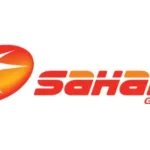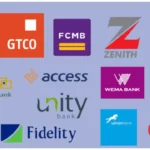Google and Accel have teamed up to search for India’s earliest-stage AI startups and fund them in a way the Google AI Futures Fund has never attempted before. Accel and Google announced the partnership on Tuesday, revealing that they will jointly invest up to $2 million in each startup through the Atoms program. Both companies plan to put in up to $1 million each, and the 2026 cohort will center on founders in India and those in the Indian diaspora who are building AI products right from the start.
Accel partner Prayank Swaroop explained that the goal is simple and ambitious: build AI products designed for billions of Indians while supporting startups in India that aim for global reach. He noted that India holds a unique position with its massive internet and smartphone user base and a strong engineering talent pool. Even though frontier AI development has mostly emerged from the U.S. and China, India is becoming attractive to global players. OpenAI, Anthropic, and several major investors have started planting deeper roots in the country. With a growing mobile-first population, expanding cloud infrastructure, and relatively affordable software development, investors believe India can carve out a real place in global AI, if the ecosystem can convert talent into original products and research.
Swaroop said the investments would not target only one niche. Creativity, entertainment, coding, future-of-work tools, SaaS platforms, and even foundational models fall within their scope. He added that Accel and Google plan to identify areas where large language models might advance in the next year or two and back Indian founders already building in that direction.
Founders in the program will receive a significant boost beyond just capital. Google plans to give up to $350,000 in compute credits across Google Cloud, Gemini, and DeepMind. The startups will gain early access to models, APIs, and experimental tools. The support includes guidance from Google Labs and DeepMind researchers, co-development opportunities, monthly mentorship sessions with Accel partners and Google’s engineering leads, and immersion experiences in London and the Bay Area, including Google I/O. They will also get marketing support and access to Accel’s founder network and Google’s AI builder ecosystem.
Jonathan Silber, co-founder and director of the Google AI Futures Fund, said India represents a powerful well of innovation and talent. He believes Indian founders will drive the next era of AI-led global technology. He also pointed out that this is the Futures Fund’s first partnership of this kind anywhere in the world, and they chose India deliberately. Google has invested heavily in the country for years and continues to increase its commitments.
Recently, Google announced a $15 billion plan to build a 1-gigawatt data center and AI hub in India. In 2020, the company launched a $10 billion digitization fund and has since backed companies like Bharti Airtel, Reliance Jio, and Flipkart. Just last month, Google even partnered with Reliance to offer millions of Jio subscribers free access to AI Pro.
The AI Futures Fund, which launched in May, serves as Google’s dedicated investment vehicle for AI startups around the world. It already supports companies like Replit and Harvey, and it has also invested in Indian startups such as Toonsutra and STAN. Silber told TechMarge that Google will appear on the cap tables of startups funded through the collaboration and plans to have a meaningful presence, though he didn’t reveal how the firm’s stake will compare to Accel’s.
Silber said the partnership focuses on nurturing early-stage founders rather than steering them toward future acquisitions or cloud deals. He emphasized that Google’s role in the partnership has nothing to do with sales quotas or pushing startups to become Google Cloud customers. Their main objective is to spark the next major wave of AI innovation from India.
Applicants do not need to use Google products exclusively. Silber and Swaroop both made that clear. Startups can use whatever AI tools fit their needs, whether that comes from Google, Anthropic, OpenAI, or others. Silber believes Google’s technology will be the best option sometimes, but not always. The companies hope to create unique integrations with participating startups, not restrict them.
Accel has been running Atoms since 2021 as a pre-seed and seed platform, supporting more than 40 startups that have raised over $300 million in follow-on funding. This year, Accel expanded Atoms to include Indian-origin founders living abroad to widen the pool of innovation. The current collaboration with Google comes shortly after Accel partnered with Prosus to co-invest in Atoms X, a program targeted at early-stage Indian founders building large-scale solutions that could reach mainstream users across the country.
Silber said the partnership with Accel is simply about spotting exceptional founders early and supporting them with resources that can genuinely shift their trajectory. They want to help shape an environment where Indian AI startups can compete globally and break new ground.
He said Google is not using this initiative as a gateway to acquisitions or strategic dominance, and they are not measuring success by customer sign-ups. Their only real priority is to witness the next generation of meaningful AI breakthroughs rising from India and reaching the world.


















